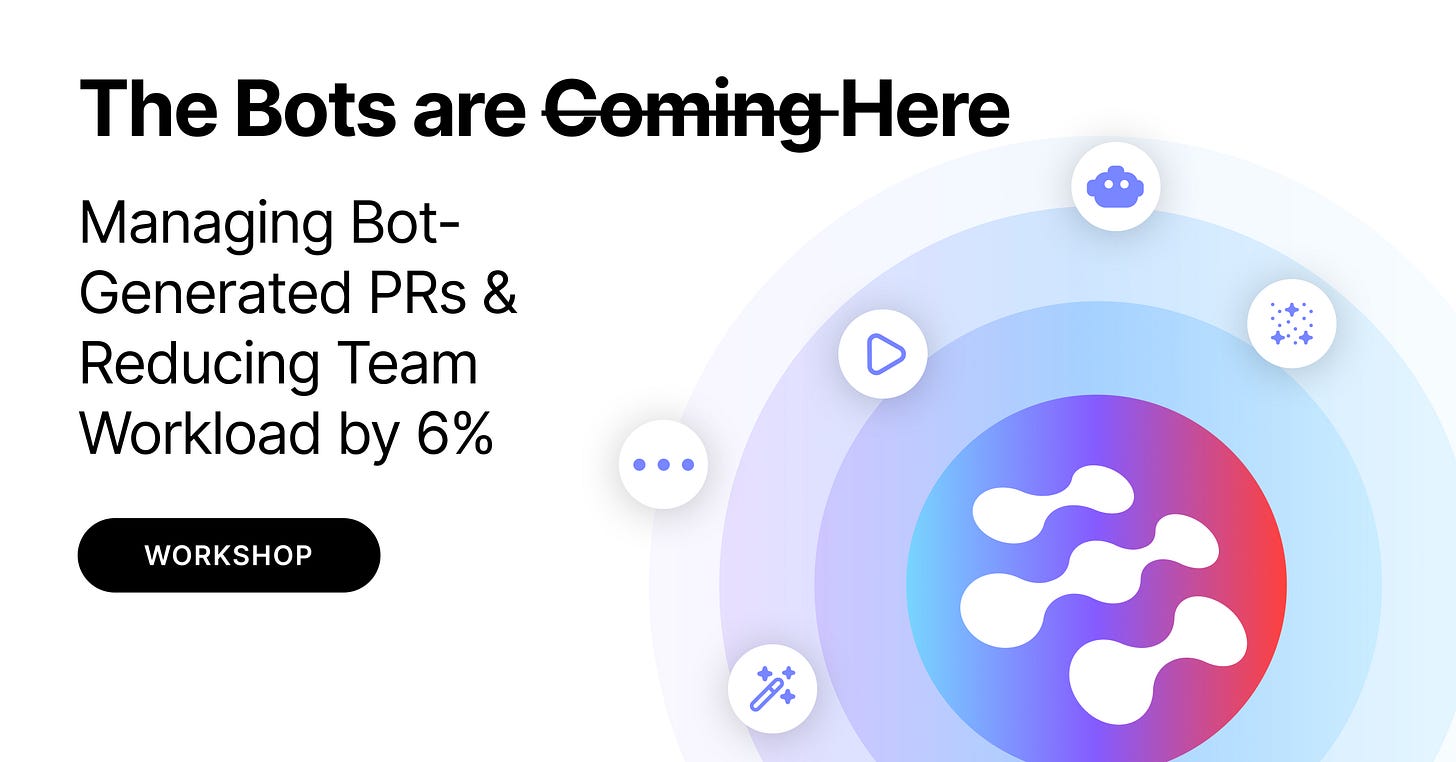How Specialized Models Drive Developer Productivity | Tabnine’s Brandon Jung
Plus, a new era of writing code, the ultimate guide to developer happiness, and why leadership teams fail.
What are the limitations of general large language models, and when should you evaluate more specialized models for your team’s most important use case?
This week, Conor Bronsdon sits down with Brandon Jung, Vice President of Ecosystem at Tabnine, to explore the difference between specialized models and LLMs. Brandon highlights how specialized models outperform LLMs when it comes to specific coding tasks, and how developers can leverage tailored solutions to improve developer productivity and code quality. The conversation covers the importance of data transparency, data origination, cost implications, and regulatory considerations such as the EU's AI Act.
Whether you're a developer looking to boost your productivity or an engineering leader evaluating solutions for your team, this episode offers important context on the next wave of AI solutions.
“Even if the technology is there, I think the bigger question is trust, right?
Trust comes from transparency. full stop. And I continue to see a dramatic lack of transparency across the board with the way many companies handle what data goes into those models.
I think it's just critical that we push for transparency and trust as it is in things like government and organizations. These are not new principles, and there are ones that will be true no matter where you apply them.”
Episode Highlights:
0:31 Specialized models vs. LLMs
1:56 The problems with LLMs and data integrity
12:34 Why AGI is further away than we think
16:11 Evaluating the right models for your engineering team
23:42 Is AI code secure?
26:22 How to adjust to work with AI effectively
32:48 Training developers in the new AI world
The Download
The Download is engineering leadership content we’re reading, watching, and attending that we think you might find valuable.
1. A new era of writing code
If you want a tangible example of how engineers are using AI to improve productivity, Ryan Peterman’s recent post shows how he used an LLM-based IDE to complete a weekend project without writing a single line of code.
While LLMs excel at small, well-scoped changes, Peterman notes their limitations with ambiguous or complex tasks and emphasizes the importance of high-level planning and debugging.
2. The Ultimate Guide to Developer Happiness
Improving developer happiness starts with improving developer experience:
When developers understand their code, they’re 42% more productive. When developers are able to get faster turnaround times, they are 20% more innovative.
GitHub’s recent blog post outlines five actionable tips to help your team:
1. Boost productivity with a great developer experience
2. Use AI to secure your code
3. Customize your LLMs
4. Prepare your repository for teamwork
5. Invest in your team’s learning opportunities
Read: The Ultimate Guide to Developer Happiness
Managing Bot-Generated PRs & Reducing Team Workload by 6% (Sponsor)
13% of all pull requests are bot-created today, and they are creating a unique impact on your SDLC — LinearB’s upcoming research and workshop will expose the effects bots are having on your team’s developer experience and productivity.
Engineering orgs who create a system for managing bot-generated PRs are able to reduce their entire review load by over 6%, while also making drastic improvements in their security and compliance posture.
If you want to learn how your team can manage bot-generated PRs and get early access to LinearB’s report, register for our upcoming workshop on September 24th or 25th
3. Why Leadership Teams Fail
Thomas Keil and Marianna Zangrillo interviewed over 100 CEOs and executives to identify three common types of dysfunction that impact organizational performance:
Shark tanks: Where competition turns into destructive infighting
Petting zoos: Where conflict avoidance stifles innovation
Mediocracies: Where complacency and lack of competence dominate
These patterns undermine teamwork, decision-making, and execution of strategy. To overcome dysfunction, leaders must clearly define expectations, manage competition, foster productive debate, and sometimes, replace ineffective team members.
Read: Why Leadership Teams Fail
4. Automated ≠ Autonomous: Developer Productivity and AI with Tara Hernandez
If you want another perspective on AI’s role in developer productivity, our episode earlier this season with MongoDB’s VP of Developer Productivity, Tara Hernandez, is a great watch.
Tara emphasizes that efficient software development requires a focus on outcomes, reduced noise for developers, and a healthy balance between technology, processes, and communication.
Upcoming Events
Managing Bot-Generated PRs & Reducing Team Workload by 6%
September 24th or 25th | Online
Highlights: In this 45-minute workshop, LinearB will walk you through insights about bot issued pull requests, and how you can reduce your team workload by 6%





